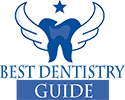When undergoing a tooth removal procedure, it is essential to follow any aftercare advice your dentist provides. This guidance can impact the speed of your recovery, as well as help to ease discomfort and prevent complications.
Properly caring for the wound left behind by an extracted tooth helps you to heal quicker and minimize the risk of infection. Post-procedure care can include restricting your activities, taking pain-relieving medications, and avoiding chewing in the affected area.
The guidance provided by your dentist may include the following.
Control the bleeding
A small amount of bleeding is typical after a tooth extraction. Control excessive bleeding by biting down on a piece of clean gauze. If bleeding has not slowed down after about 30 minutes, bite down on a damp tea bag for a further 30 minutes while sitting upright. Tea bags contain tannic acid, which can aid clotting by contracting blood vessels.
Avoid dislodging the blood clot
You should drink plenty of room-temperature or luke-warm fluids while recovering from an extraction — avoid hot food and drink for a few days. Don’t use a straw, as the force of suction can dislodge the blood clot and reopen the wound.
If this happens, you will expose the nerves and bone tissue underneath, which results in a painful condition called “dry socket.” Avoid chewing on the extraction site and vigorously rinsing your mouth, as these can also cause the clot to detach from the wound. However, you can gently rinse your mouth with warm salt water after two to three days to aid healing.
If you think you may have developed dry socket, contact your dentist as soon as possible.

Reduce swelling
Some patients experience facial swelling following tooth extraction. Typically, swelling should not continue for longer than three days. To reduce swelling, avoid touching the wound and apply ice to your face near the affected area.
Manage pain
Pain is a common after-effect of tooth removal. If you are experiencing pain in the days after the procedure, take the medication prescribed by your dentist if you received any, or use an over-the-counter painkiller with anti-inflammatory benefits such as ibuprofen.
The level of pain you experience should ease with each passing day. If the pain does not lessen within this timeframe, you should contact your dentist, as you may have developed an infection that requires prompt attention.

Conclusion
Having a tooth removed is relatively common, although it is a last resort in most cases. Your dentist will exhaust all avenues of restorative treatment before recommending an extraction, although they will remove the tooth if you specifically request it.
Make sure to take note of any post-procedure care instructions you receive from your dentist, even if you’ve read this article. These are the most common, but there may be other considerations specific to your case that you need to be aware of.
If you think you may need to have a tooth extracted, search your local business listings for a dentist that offers tooth removal in Birmingham, MI. They will be happy to answer any other queries you may have about the procedure itself and may be able to provide you with a less drastic alternative.








